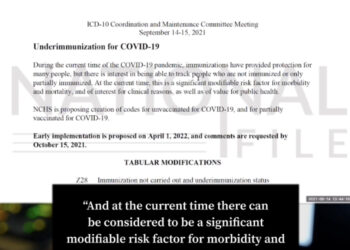Last Updated on November 27, 2019
Attorney General William Barr emphatically dismissed “conspiracy theories” regarding the death of convicted pedophile Jeffrey Epstein’s death in an interview last week.
However, Barr’s family connections to Epstein – dating back to the 1970s – cast a looming shadow of doubt over his handling of the pedophile financier’s suicide investigation.
Most recently, Barr said in July that he would be recusing himself from the then still-living Epstein’s child sex trafficking case because “I am recused from that matter because one of the law firms that represented Epstein long ago was a firm I subsequently joined for a period of time.”
Now that Epstein is officially dead, it appears Barr does not plan to recuse himself from sealing the information broker’s suicide investigation.
AG William Barr: "I'm recused from that matter because one of the law firms that represented Epstein long ago was a firm that I subsequently joined for a period of time." pic.twitter.com/hdwqgOlrWD
— The Hill (@thehill) July 8, 2019
Barr’s knowledge of Epstein seems to stretch back much farther than his own stint at a law firm.
Bill Barr’s father Donald Barr hired 21-year-old, college dropout Jeffrey Epstein to teach at the Dalton prep school in New York during the former’s tenure as school headmaster.
Epstein’s tenure at Dalton would later be credited as instrumental in his ability to forge connections with the rich and powerful.
As The New York Times reported, Epstein’s strange behavior around young women was noteworthy during his brief time at Dalton:
In the mid-1970s, students at one of New York’s most esteemed prep schools were surprised to encounter a new teacher who pushed the limits on the school’s strict dress code, wandering the halls in a fur coat, gold chains and an open shirt that exposed his chest.
The teacher, Jeffrey Epstein, would decades later face allegations that he coerced and trafficked teenagers for sex. At the Dalton School on the Upper East Side, some students saw Mr. Epstein as an unusual and unsettling figure, willing to violate the norms in his encounters with girls.
Eight former students who attended the prestigious school during Mr. Epstein’s short tenure there said that his conduct with teenage girls had left an impression that had lingered for decades. One former student recalled him showing up at a party where students were drinking, while most remembered his persistent attention on the girls in hallways and classrooms.
“I can remember thinking at the time, ‘This is wrong,’” said Scott Spizer, who graduated from Dalton in 1976.
The hiring of Epstein was not Donald Barr’s only brush with an individual involved in sex trafficking. In fact, he wrote a book about it.
Barr’s 1973 science fiction novel “Space Relations: A Slighty Gothic Interplanetary Tale” details a setting on the planet Kossar where “boredom and absolute power have driven the rulers to a special kind of madness.”
Vice’s Motherboard described the plot thusly:
The protagonist is John Craig, an Earth man in his 30s. After space pirates capture the passenger ship Craig is traveling on, he is sold into slavery on a planet called Kossar, a human colony run by seven oligarchs who delight in performing cruelties on their captives. The leaders are all male except one, Lady Morgan Sidney, whom the reader is immediately informed has “high breasts and long thighs.”
Craig ends up enslaved by Lady Morgan and falls in love with her. Though he is set up to be a kind of anti-slavery hero, he does not mind that she is a flamboyant sadist, and even enjoys participating in her demand to sexually assault an enslaved teenager at a clinic used to “breed” enslaved people.(I’ve tried to find interviews with Barr that might clarify his inspiration for the novel, but only came up with a 1986 essay he wrote for The New York Times about ideal books for young readers. “Adolescence appears to be a relatively modern invention,” Barr opines, “and the romantic wretchedness of it appears to be more modern still.”)
By far the most disgusting aspect of the novel is its fixation on sexualizing adolescents, and its depictions of rape. Even the adult characters in the book are constantly infantilized. The novel is also rife with casually unsettling observations such as: “To me, pederasty seems utterly lacking in aesthetic appeal.”
The ties between the Barr family and Epstein are highly circumstantial, but raise question’s about Barr’s unwillingness to recuse himself from Epstein’s suicide investigation.





















